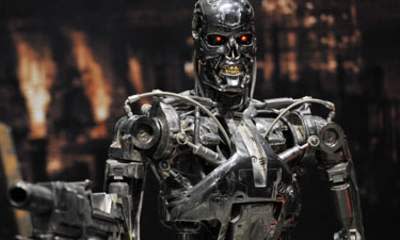'Doomsday List' Scenarios To Be Investigated
A list of doomsday scenarios that could wipe out humanity has been released by scientists.
Asteroid impact, extreme weather, war, nuclear apocalypse and a fast-spreading pandemic are among the "doomsday risks".
Cyberattacks on infrastructure, computers becoming self-aware, a man-made supervirus or a food supply sabotage complete the list.
The "existential risks" to Earth will be investigated by a group of scientists, which includes physicist Professor Stephen Hawking and Astronomer Royal Lord Rees.
Experts from Cambridge University say they now plan to work with colleagues at Oxford to come up with a more complete list of doomsday risks, and to "assess how to enhance resilience against the more credible ones".
"In future decades, events with low probability but catastrophic consequences may loom high on the political agenda," Lord Rees told the British Science Festival in Newcastle.
He said the public was "in denial" and that the threat from out-of-control climate change and cyber or bio-terrorism was far more dangerous than people believe.
The efforts of scientists and environmentalists are vital to "survive this century", added the former president of the Royal Society.
"We fret too much about minor hazards of everyday life: improbable air crashes, carcinogens in food, low radiation doses, and so forth," said the 71-year-old.
"But the wide public is in denial about two kinds of threats: those that we're causing collectively to the biosphere, and those that stem from the greater vulnerability of our interconnected world to error or terror induced by individuals or small groups."
The Cambridge Centre for the Study of Existential Risk is in the process of seeking funding for a range of research projects.

 Yahoo News
Yahoo News 

